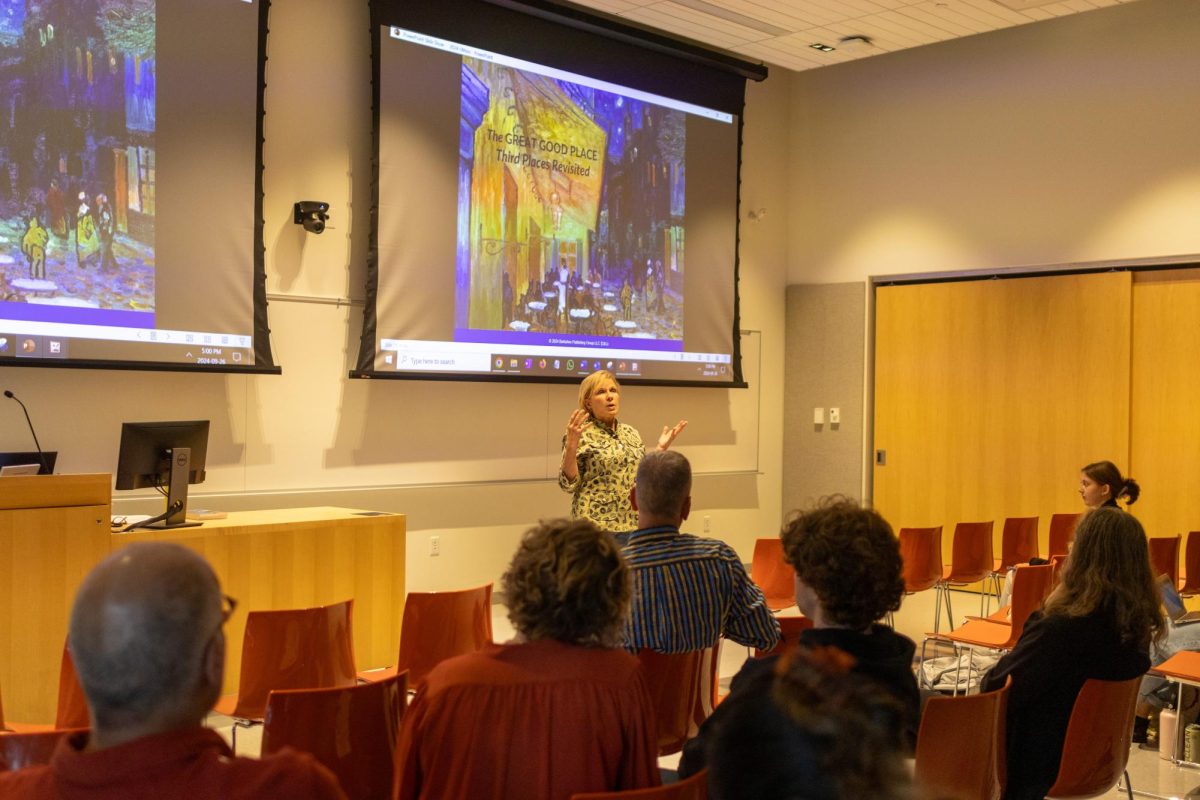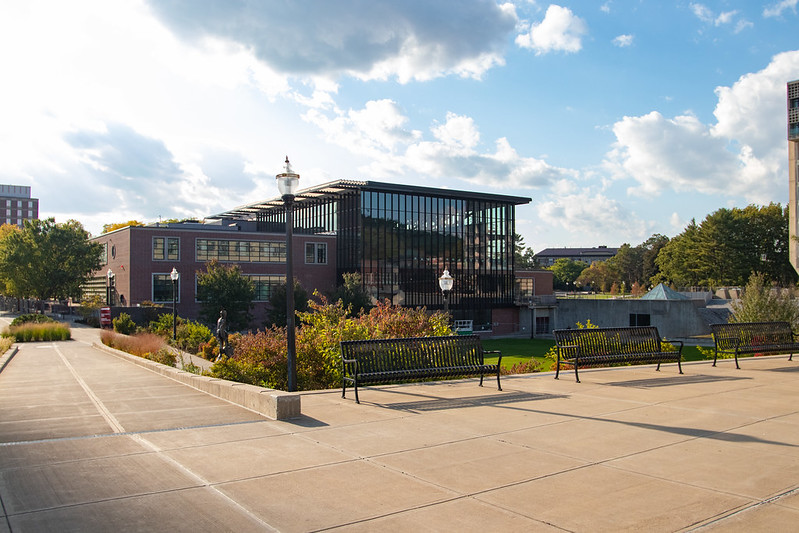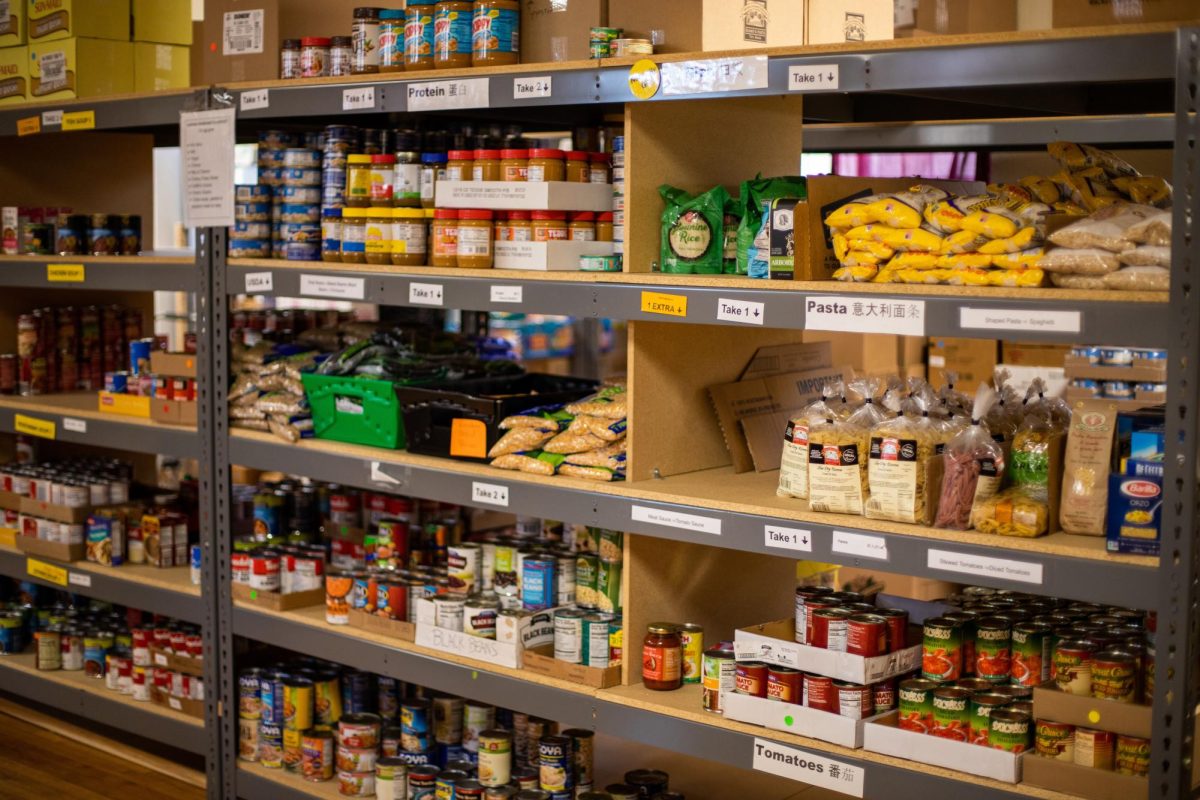“Do you know who your real parents are?”
It’s awkward questions in elementary school like this one that many adoptive children recall later in life.
As a result of the issue of finding individuals who can relate to an adoptive child’s experience, and feelings that greater support for adoptive youth would be beneficial to these individuals, a partnership has developed in the Pioneer Valley community..
The Rudd Adoption Research Program within the University of Massachusetts’ psychology department has partnered with Big Brothers, Big Sisters of Hampshire County to create a mentor program for adopted youth in the community. The program is called The Adoption Mentoring Partnership, and this fall semester marks the program’s second year in existence.
According to Quade French, a University of Massachusetts graduate student of clinical psychology and program coordinator for The Adoption Mentoring Partnership, adoptive children find discussing their family dynamics with peers who are not adopted can often lead to confusing conversations. These conversations can be even more complicated in transracial adoptions which, according to Joseph Shapiro’s Nov. 30, 2009 NPR.org blog post “Most Adopted Children Are Happy, Healthy,” approximately four out of 10 adopted children are in transracial adoptions.
“These are most common for children who have been adopted from another country,” said Shapiro of transracial adoptions in the United States. “In most cases the children have non-Hispanic white parents.”
In a 2004 document titled “In the Children’s World at School” written by Marilyn Schoettle of The Center for Adoption and Support Education, Schoettle writes about the adoptive child’s experience at school and measures being taken through programs similar to programs like the Adoption Mentoring Partnership to enhance this experience.
Schoettle writes “Adoptive parents are talking to teachers, counselors, and principals across the country, informing them of appropriate language and asking them to be aware of school assignments that might be difficult for an adopted student to complete.” Assignments such as a drawing the family tree, as French pointed out, may be difficult for adoptive children.
The Adoption Mentoring Partnership, according to a brief written by the program’s officials, “seeks to provide adopted children with adopted mentors who can help them better negotiate complex issues such as adoption, race, and ethnicity, and to also provide support networks for both the mentors and the parents, in a comprehensive, unified program structure.” Rudd Family Foundation Chair on Adoption Research and UMass Professor Hal Grotevant wanted the program to match the strength of the Big Brothers [Big Sisters] mentoring program while keeping to the research goals of the Rudd Foundation.
The program essentially began with a presentation from a group of adoptive parents who were UMass graduate students. These students felt, according to French, that “schools were not understanding the unique challenges that presented their children.”
Though the statistics are nearly two years old, Shapiro’s blog post also stated that “adopted children are more likely to have been diagnosed with depression, ADD/ADHD or some sort of behavior disorder.”
“Although adopted children are for the most part in good health and show positive social behaviors,” continued Shapiro, “54 percent of children adopted from foster care have some sort of special health care need. Thirty-two percent of children in domestic adoptions and 29 percent of those in international adoptions also have special health needs.”
Big Brothers, Big Sisters of Hampshire County wanted to offer their mentoring model as a way to help these parents find a way to address their children’s needs. Grotevant was contacted and involved the Rudd Adoption Research Program. Since its inception, the program has doubled its mentor force from six individuals to 12, retaining all six mentors from the first year for the second year.
“It wasn’t pulling teeth or twisting arms,” said French. “The mentors all wanted to continue their relationships [with their mentees].”
A unique feature to the program is that all mentors must have been adopted themselves. The program grabs its mentors from the University and is always seeking mentor applicants; this fall, the program is giving priority to male applicants because of need. Mentors and mentees are matched by gender, and attempts are made to pair individuals of ethnicity and adoption story. Mentors are committed to the program for a full school year.
In the program’s year-end program summary release, a parent of a participating adoptive child was quoted anonymously saying, “In addition to spending time with his Big brother (who was adopted from the same home country) my son has also had the opportunity to meet some of his Big’s friends who are also of the same race. It’s been great for him to be exposed to and interact with other successful young men.”
Unlike unfocused mentoring programs, by requiring all mentors to have been adopted, it gives the mentor and mentee common ground if issues around adoption should arise for the young mentee.
Generally, mentors and their youth partners spend their 3-5 hours each week together participating in fun recreational activities such as eating in the UMass Dining Commons or going hiking. The pairs’ conversations do not always involve adoption, and according to French mentors and mentees use their time together to simply establish a friendship.
“Kids would know that this is a person they are already friends with,” said French. “This older person who is pretty cool because the’re on campus or in college and may have experience some of the challenges they are going through.”
“By not stressing adoption from the get-go,” continued French, “really, the hope is that the hard work of establishing trust and a connection will be out of the way when the hard questions may surface because they already have this friend that they know was adopted.”
Mentors also meet every other week to socialize with one another and share stories about their personal adoptive experiences. The group also reads literature related to adoption.
According to French, many of the mentors said they had never interacted with other adopted students at the University before entering the program. He said that having the mentors meet with each other was a way in which the program could build a support system for the mentors too.
In the year-end program summary release, a mentor of the program is quoted anonymously saying “Before this program, I would barely talk about my adoption with anyone but after each meeting I call my mom and talk to her about what I learned and ask her questions about my adoption.”
French, 27, who comes to UMass from Los Angeles, was adopted from South Korea at 10 months old.
“It’s really given me a chance to sort of think about how adoption has played an influence in my life,” said French. “And really given me a chance to participate in something I wished I had had as a child.”
While funding for the program is a continual battle, according to French, “the unique nature of this program really compels community organizations and grant funding organizations to want to help.” Logistics are currently being discussed about integrating representatives from the rest of the Five-College Consortium’s schools into the mentor pool.
Alyssa Creamer can be reached at [email protected].


















